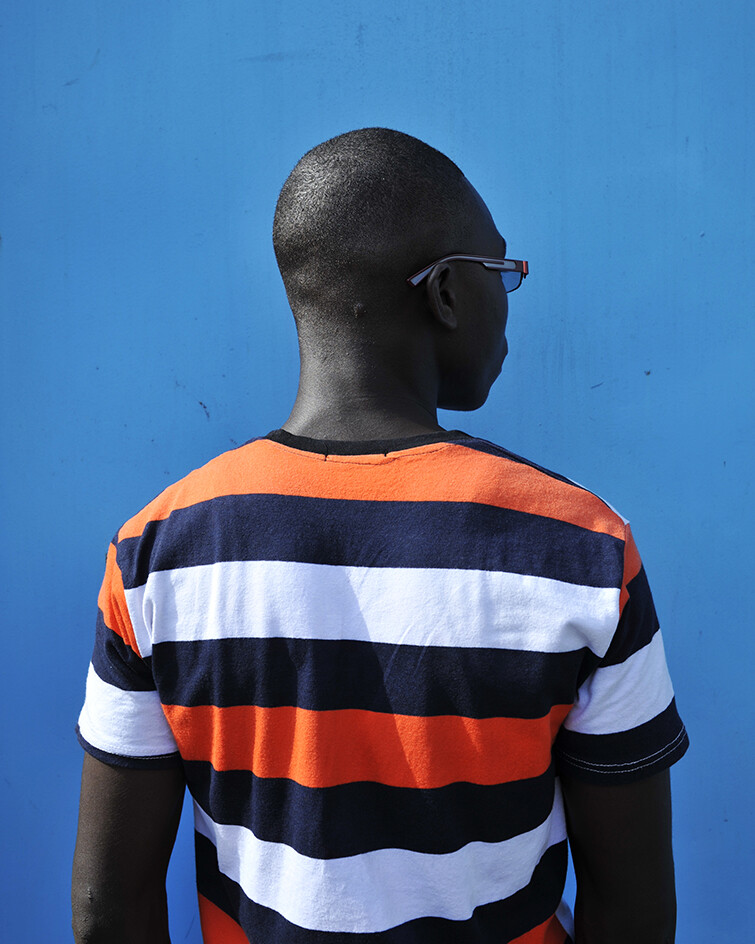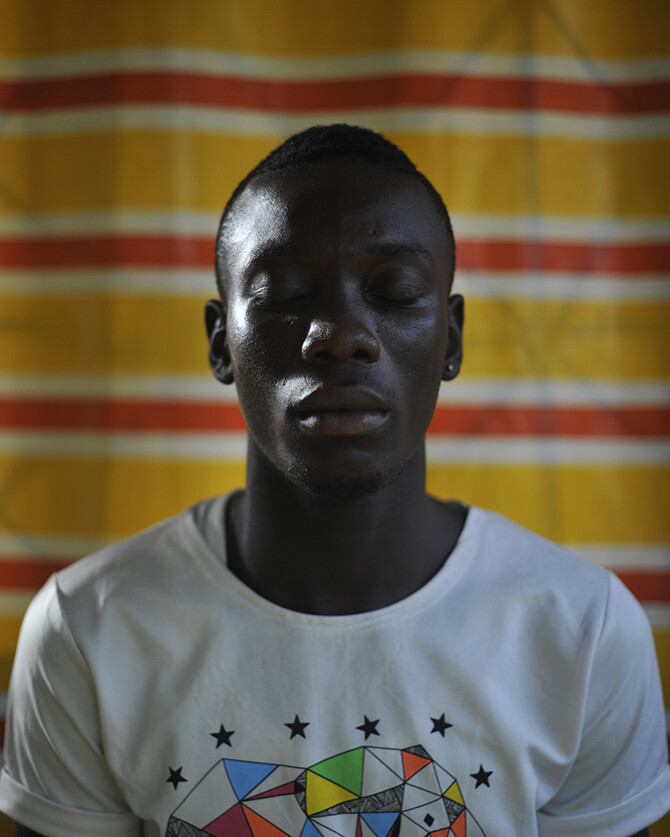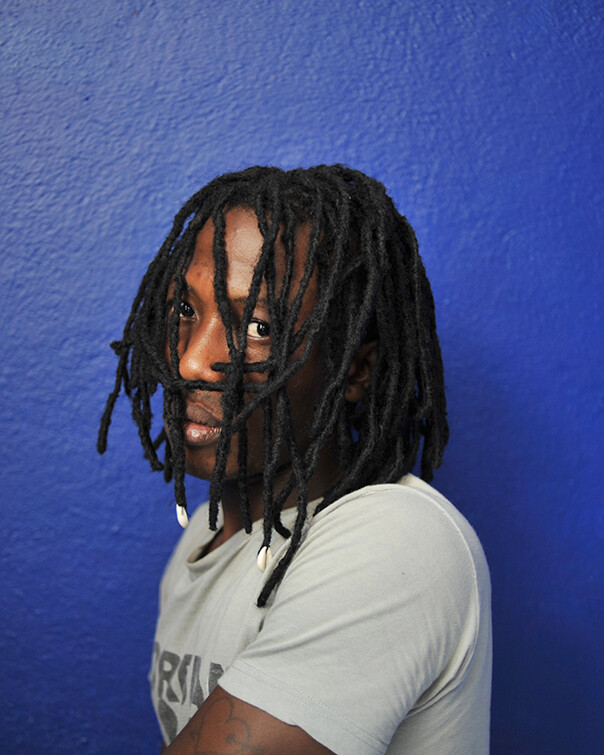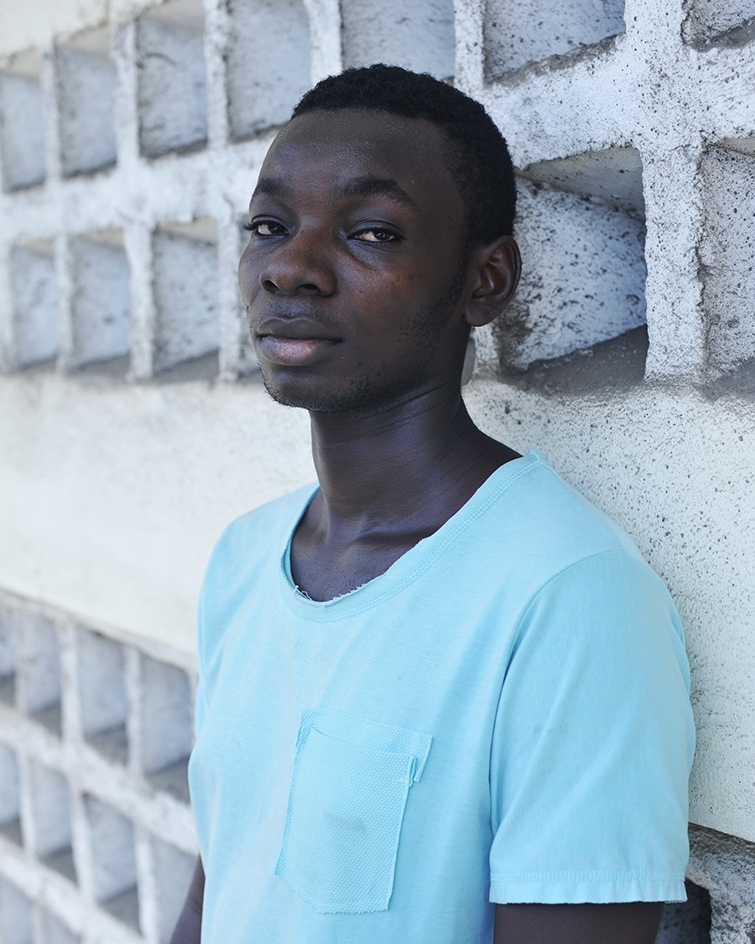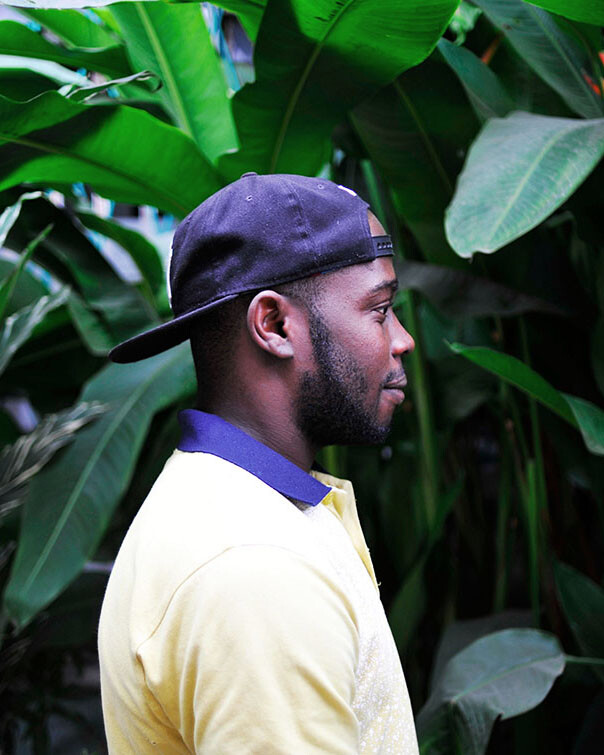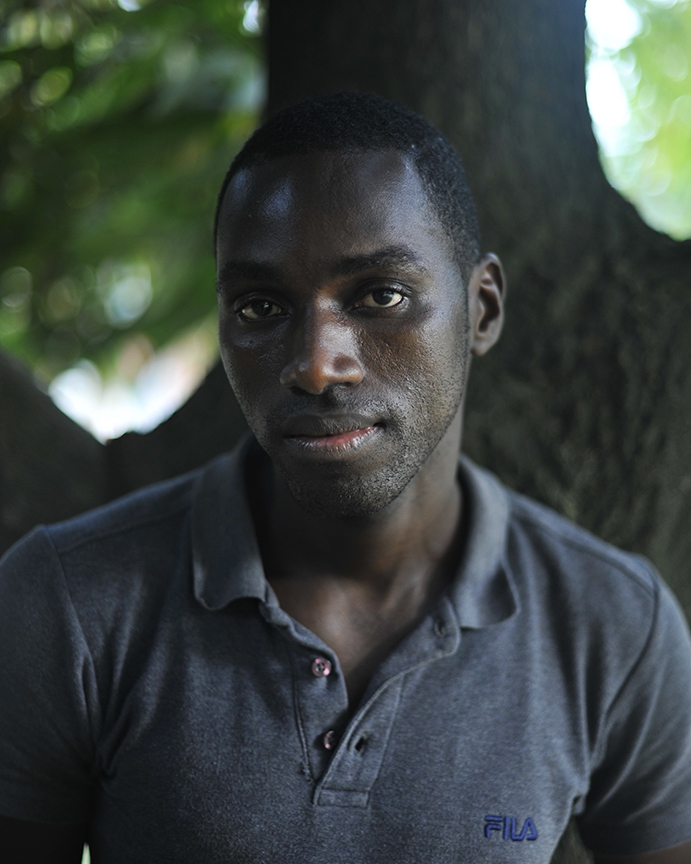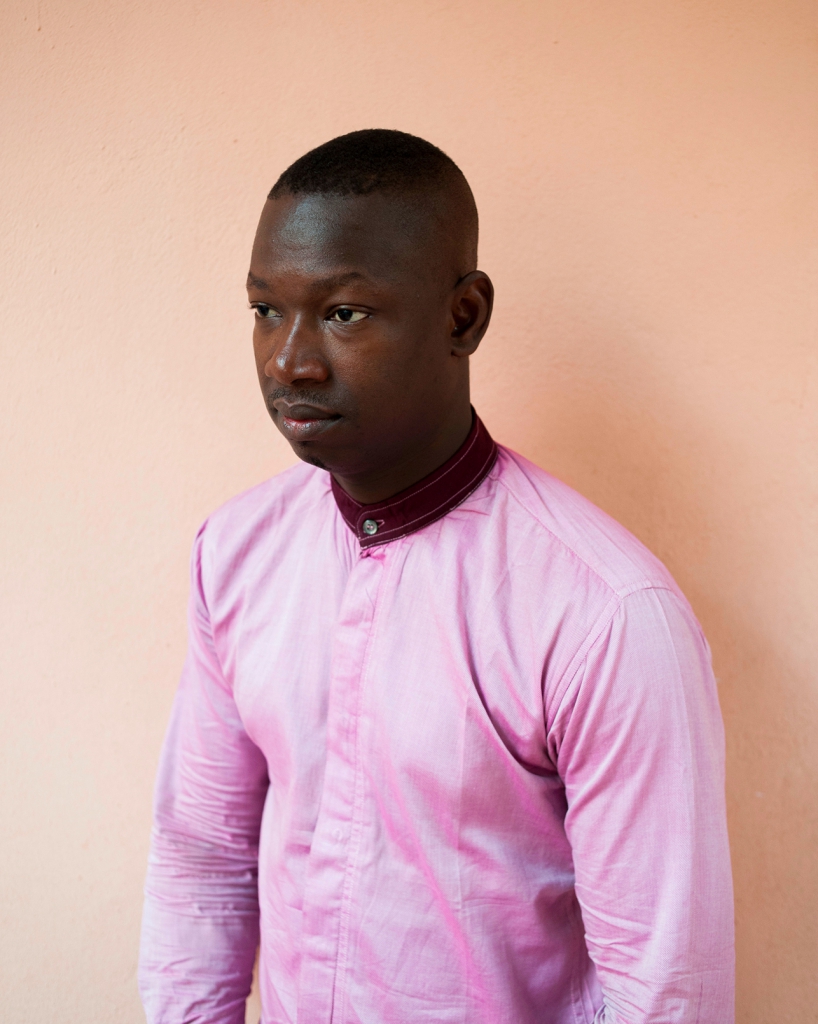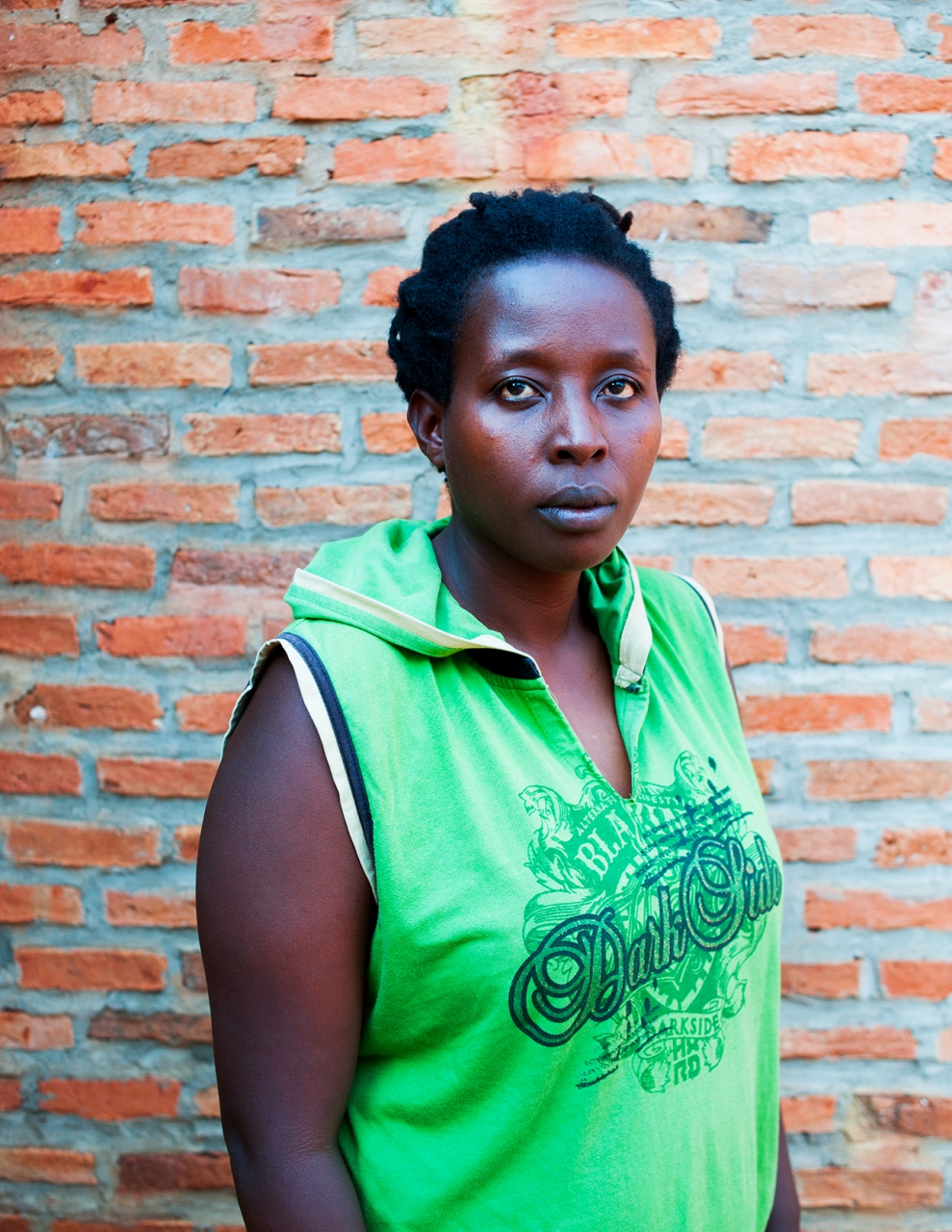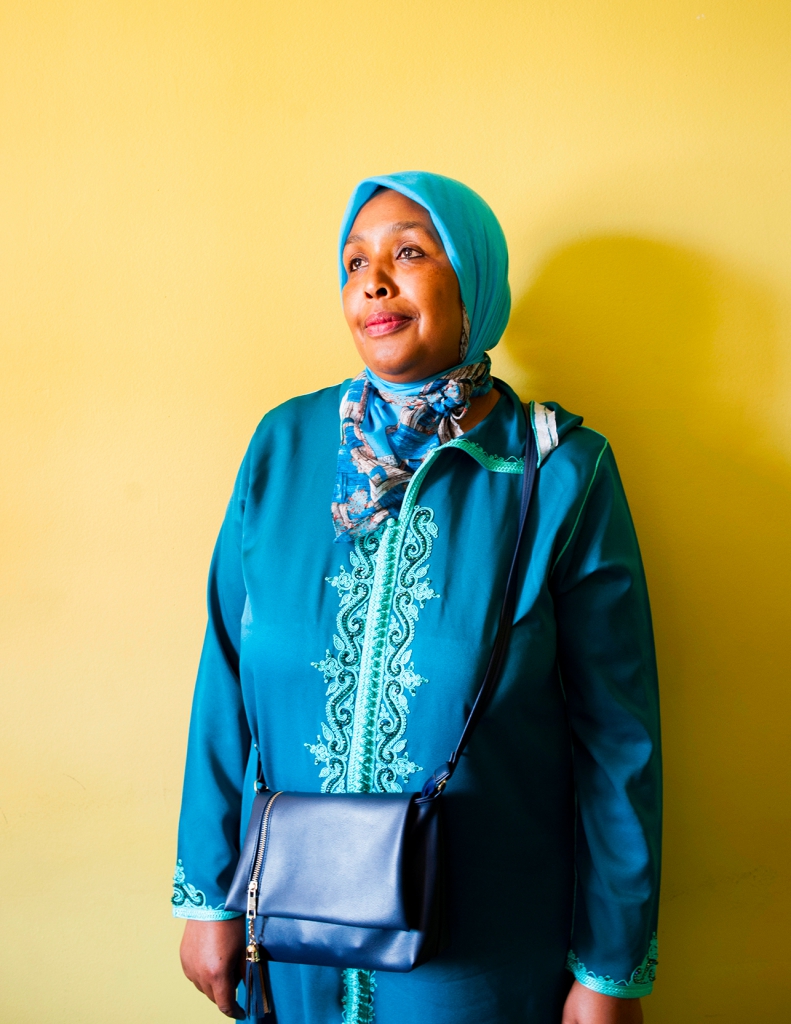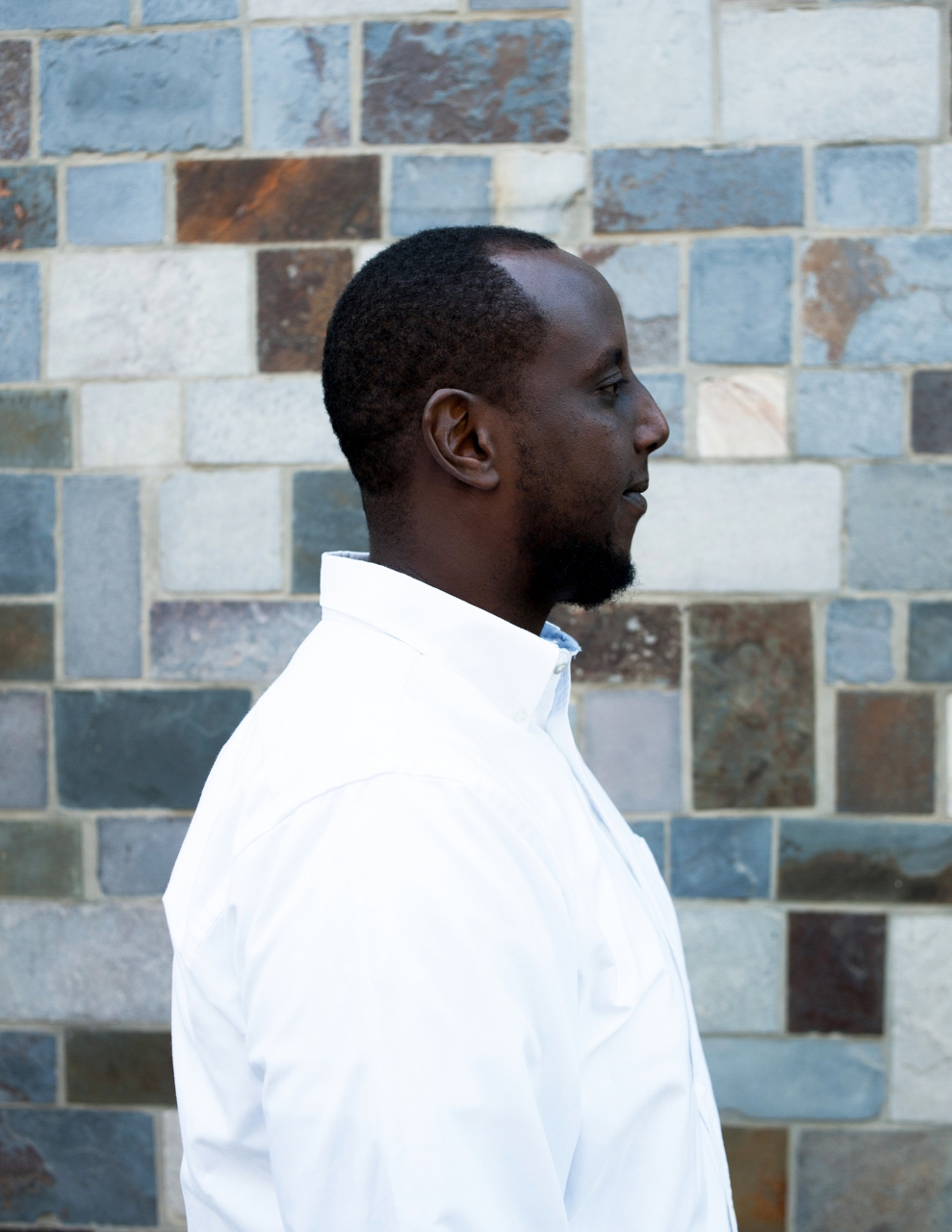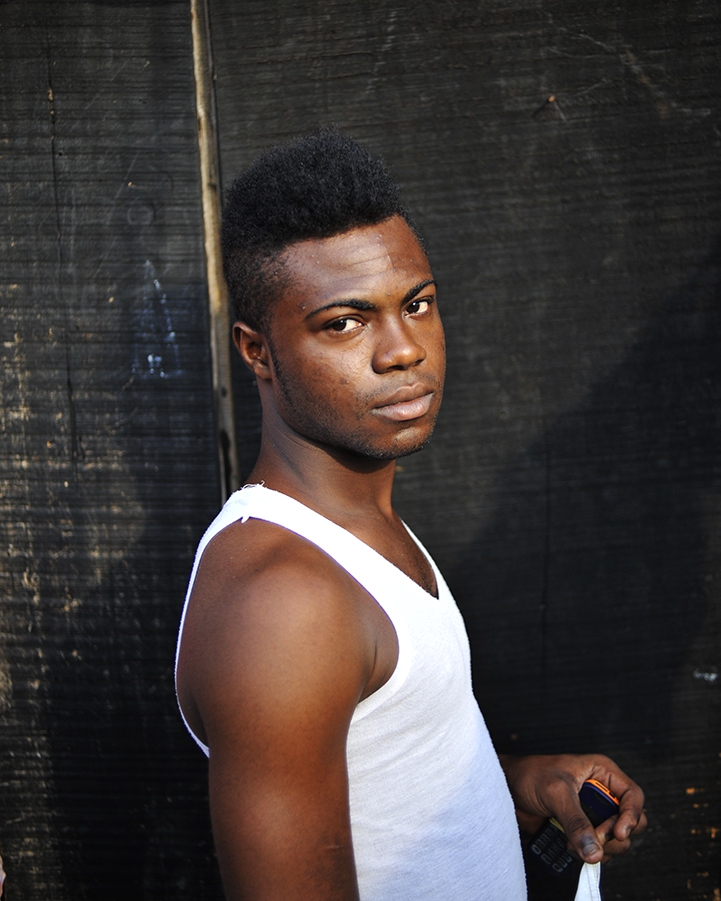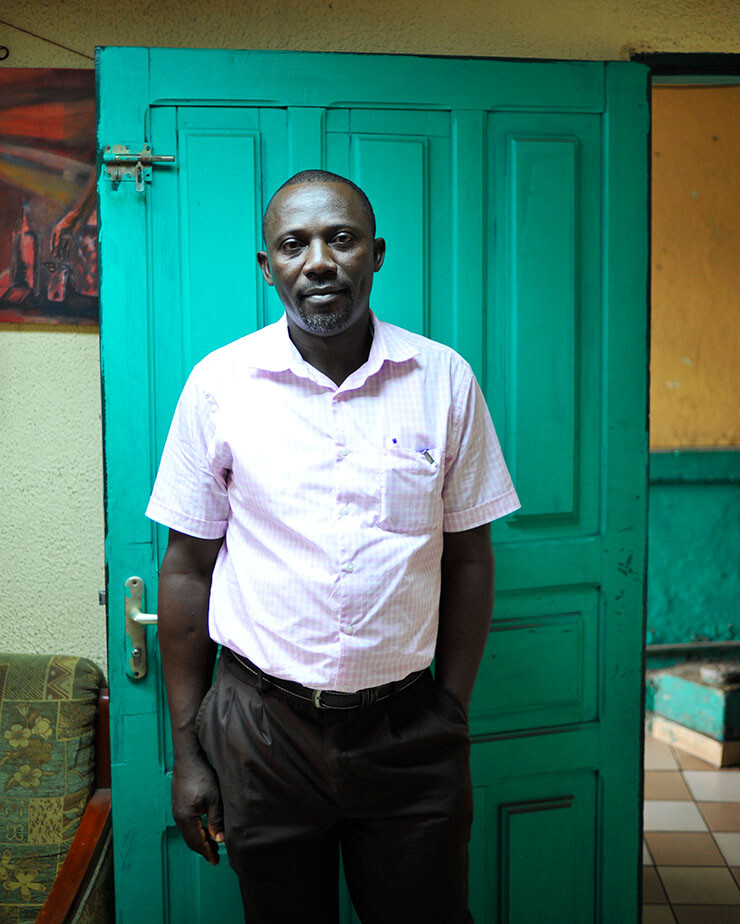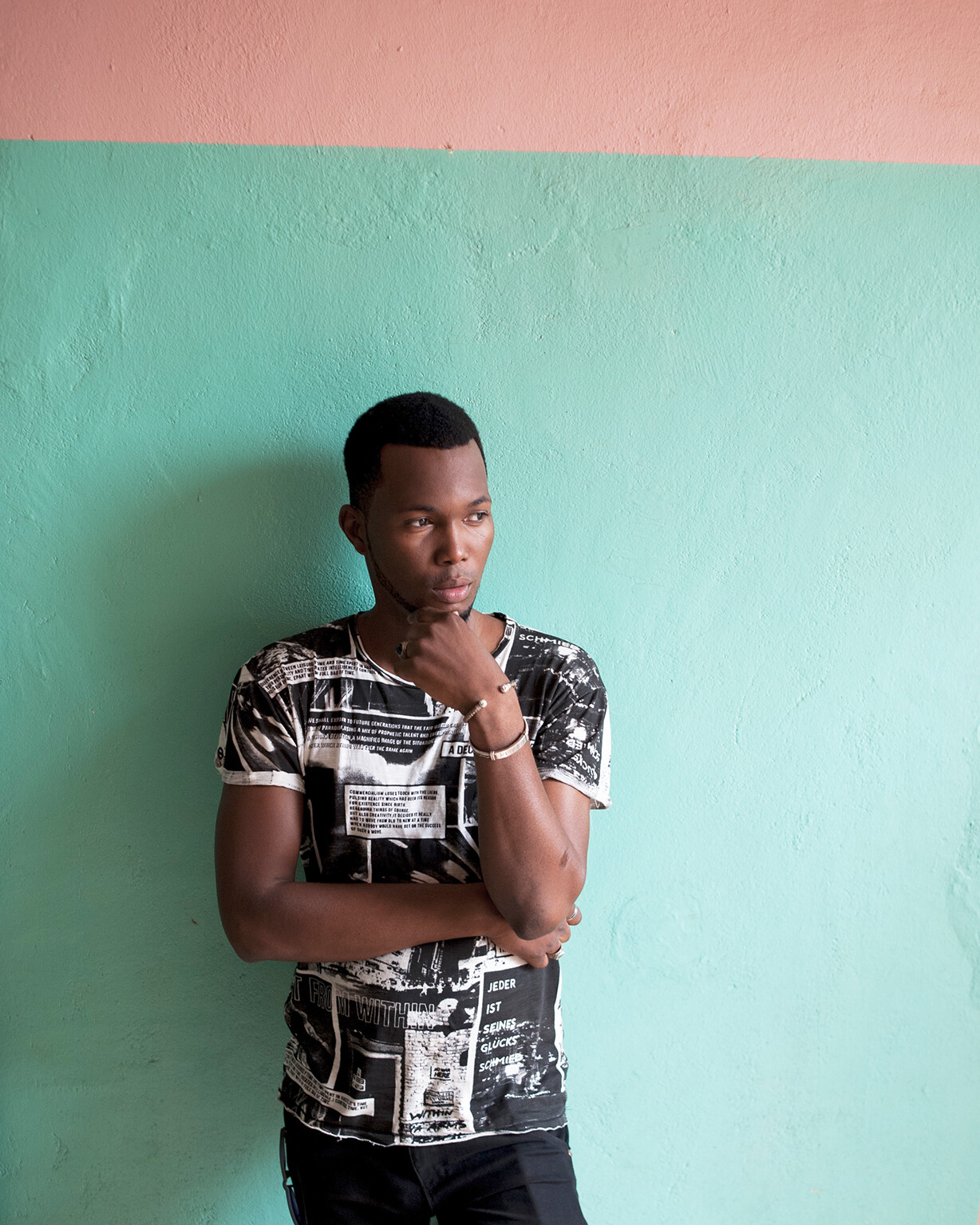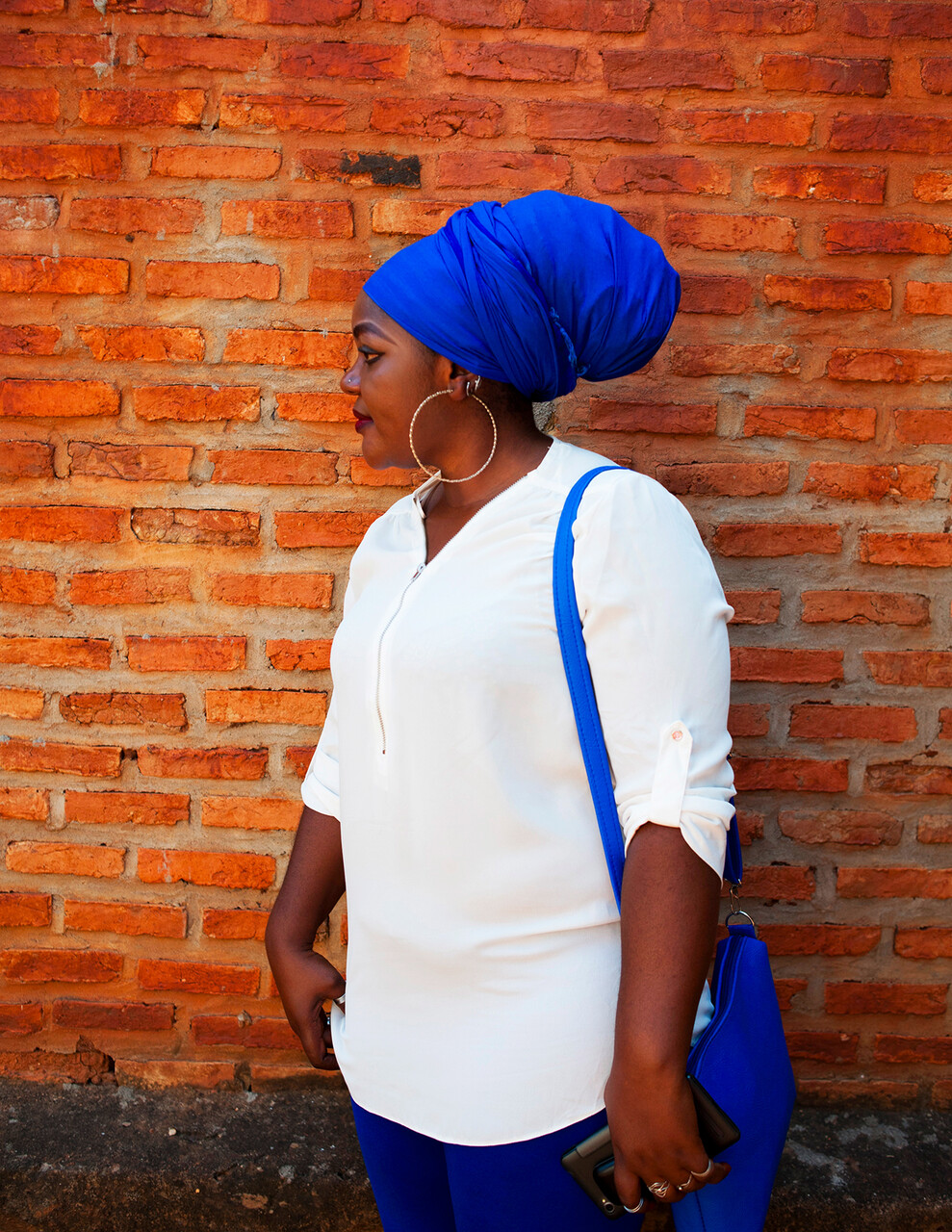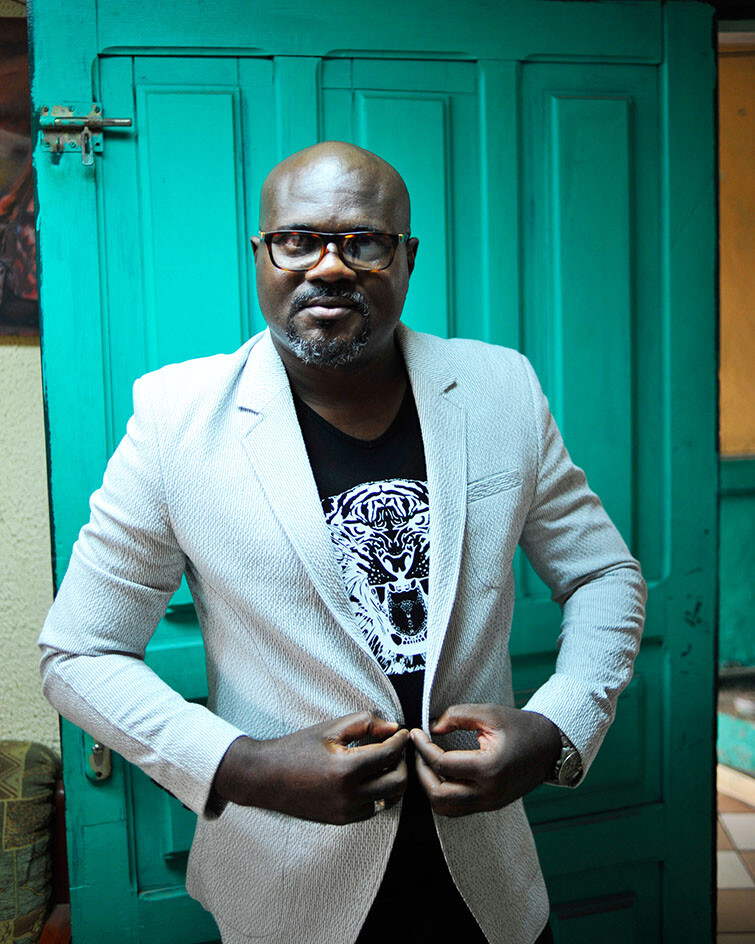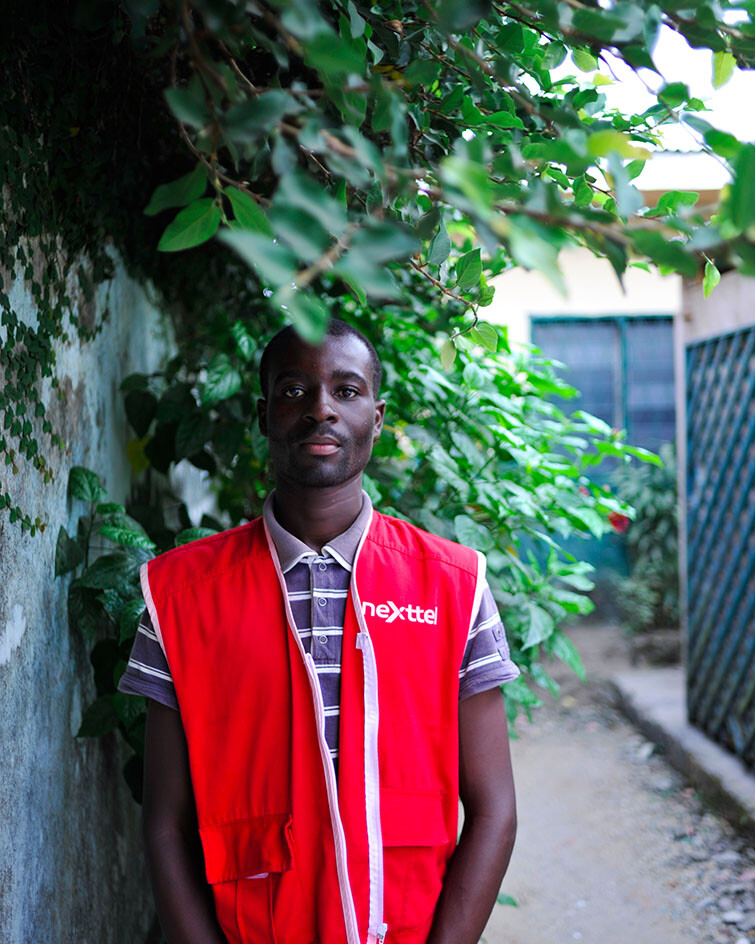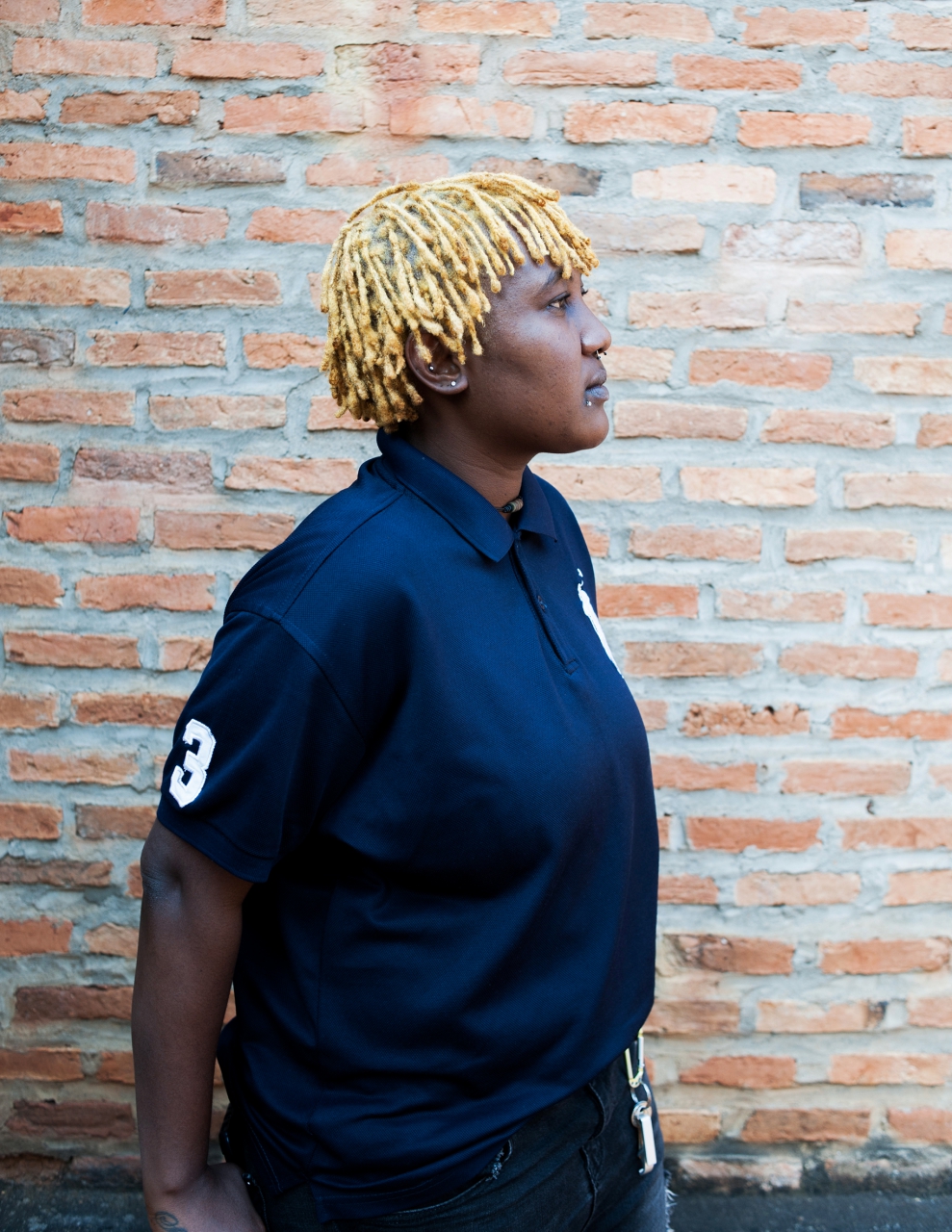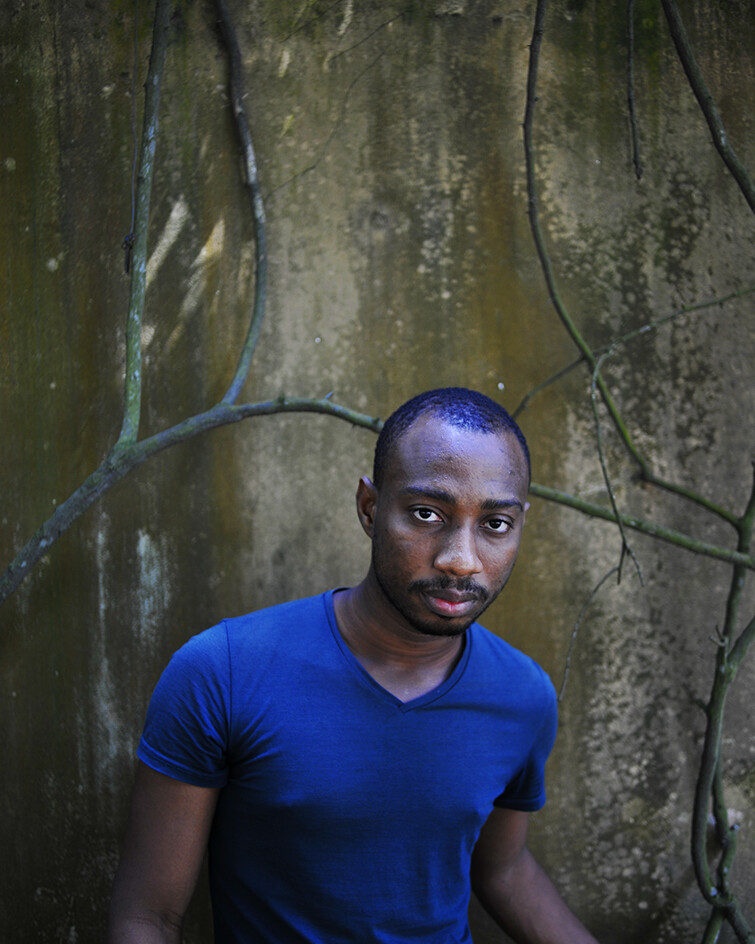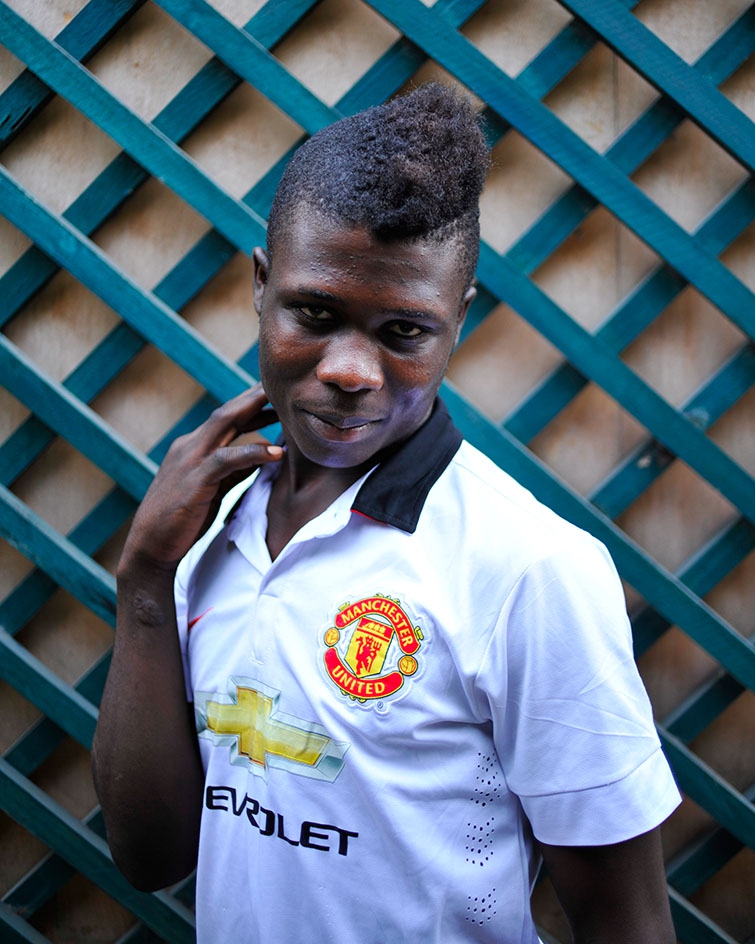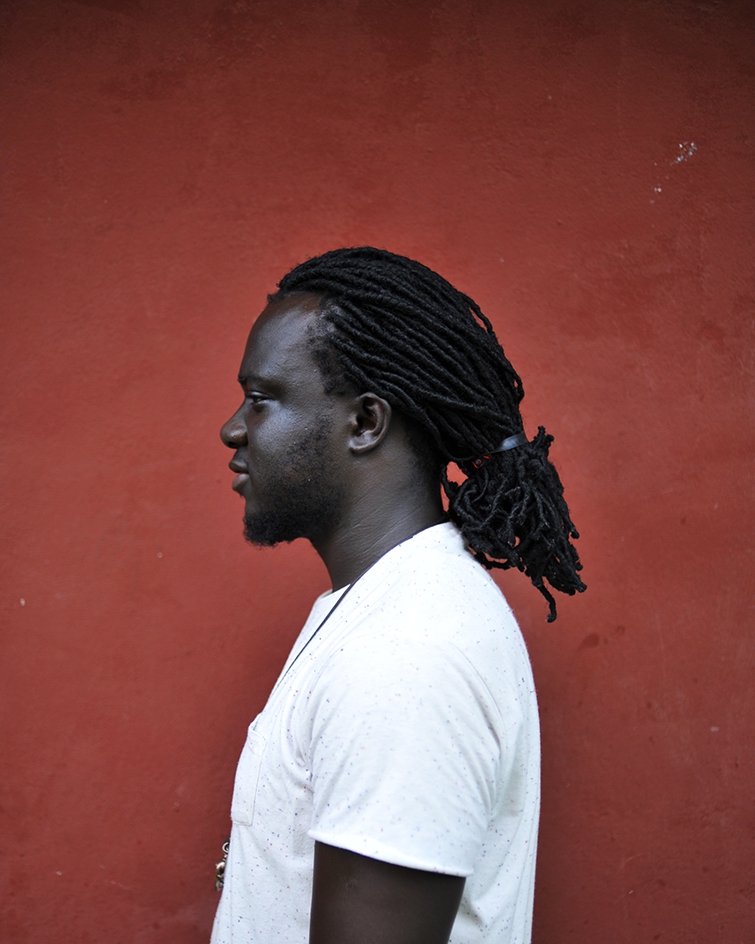inside
(ongoing)
Encouraging black minorities to make a stand in the United States, African-American activist Assata Shakur wrote: «We need to be weapons of mass construction, weapons of mass love. It is not enough to change the system. We must change ourselves.»
Today, African communities living on a continent faced with the challenge of fighting AIDS and amongst which AIDS has taken a heavy toll could issue the same call, word for word.
«Inside» is a photography project that opens up a discussion on the recognition of peer educators as key actors in the fight against AIDS and sexually transmitted diseases in Africa.
Looking into the history of epidemics shows that it is not the first time that the world has been as severely hit.
Humankind eventually defeated the ancient smallpox epidemic also known as «The Plague of Cyprian» which raged in 270 A.D. and would claim 5000 lives a day. Until 1977, no continents were left unscathed, from Africa or Asia to Europe, as well as the Caribbean and the Americas. Pontius who served as a deacon under Cyprian, bishop of Carthage, wrote of the plague: «All were shuddering, fleeing, shunning the contagion, impiously exposing their own friends, as if with the exclusion of the person who was sure to die of the plague, one could exclude death itself also.» On December 9, 1979 , the global eradication of smallpox was certified by a commission of experts.The World Health Organization officially declared the disease eradicated on May, 8, 1980.
Urgency: this word conveys the feeling of those who want to combat the AIDS epidemic, as it did during the fight against The Plague of Cyprian. It is the same urgency that is at work across Africa and peer educators are a cornerstone in the fight against AIDS, a fight waged first in their everyday lives and sometimes within their own bodies. It is easier for peers to question and challenge patients, to enable conversations and consequently fuel a vital kind of dialogue. These women and men advocate for prevention and testing for all, especially for the most vulnerable and less informed populations.
More than any other diseases, AIDS has revealed how dysfunctional our societies are, with regards to social inequality, access to education, the healthcare system, the plight of minorities and the stigma attached to them. Access to healthcare services and medical care varies greatly depending on the context.
Régis Samba-Kounzi's series of portraits is driven by an aesthetics of plasticity and combativeness. His pictures are a tribute to peer educators and aims to do justice to their work. Peer educators are heroes.These pictures also showcase the combative side of Africa, marking a sharp break with the often bleak and sordid dominant representations of the continent. These pictures are a reminder that African activists and forces will always be the best-suited to identify the obstacles which stand in the way of their own well-being.
i Pontius of Carthage, Life of Cyprian. Transl. Ernest Wallis, c. 1885. Online at Christian Classics Ethereal Library.
---
"If I'm dying of something, it's homophobia. If I'm dying of something, it's racism."
Vito Russo, ACT UP demonstration in Albany Department of Health, New York, May 9, 1988 https://www.youtube.com/watch?v=e4ctXqdoVwk
The Denver Principles (1983) : https://actupny.org/documents/Denver.html
(Some first names are borrowed).
Encouraging black minorities to make a stand in the United States, African-American activist Assata Shakur wrote: «We need to be weapons of mass construction, weapons of mass love. It is not enough to change the system. We must change ourselves.»
Today, African communities living on a continent faced with the challenge of fighting AIDS and amongst which AIDS has taken a heavy toll could issue the same call, word for word.
«Inside» is a photography project that opens up a discussion on the recognition of peer educators as key actors in the fight against AIDS and sexually transmitted diseases in Africa.
Looking into the history of epidemics shows that it is not the first time that the world has been as severely hit.
Humankind eventually defeated the ancient smallpox epidemic also known as «The Plague of Cyprian» which raged in 270 A.D. and would claim 5000 lives a day. Until 1977, no continents were left unscathed, from Africa or Asia to Europe, as well as the Caribbean and the Americas. Pontius who served as a deacon under Cyprian, bishop of Carthage, wrote of the plague: «All were shuddering, fleeing, shunning the contagion, impiously exposing their own friends, as if with the exclusion of the person who was sure to die of the plague, one could exclude death itself also.» On December 9, 1979 , the global eradication of smallpox was certified by a commission of experts.The World Health Organization officially declared the disease eradicated on May, 8, 1980.
Urgency: this word conveys the feeling of those who want to combat the AIDS epidemic, as it did during the fight against The Plague of Cyprian. It is the same urgency that is at work across Africa and peer educators are a cornerstone in the fight against AIDS, a fight waged first in their everyday lives and sometimes within their own bodies. It is easier for peers to question and challenge patients, to enable conversations and consequently fuel a vital kind of dialogue. These women and men advocate for prevention and testing for all, especially for the most vulnerable and less informed populations.
More than any other diseases, AIDS has revealed how dysfunctional our societies are, with regards to social inequality, access to education, the healthcare system, the plight of minorities and the stigma attached to them. Access to healthcare services and medical care varies greatly depending on the context.
Régis Samba-Kounzi's series of portraits is driven by an aesthetics of plasticity and combativeness. His pictures are a tribute to peer educators and aims to do justice to their work. Peer educators are heroes.These pictures also showcase the combative side of Africa, marking a sharp break with the often bleak and sordid dominant representations of the continent. These pictures are a reminder that African activists and forces will always be the best-suited to identify the obstacles which stand in the way of their own well-being.
i Pontius of Carthage, Life of Cyprian. Transl. Ernest Wallis, c. 1885. Online at Christian Classics Ethereal Library.
---
"If I'm dying of something, it's homophobia. If I'm dying of something, it's racism."
Vito Russo, ACT UP demonstration in Albany Department of Health, New York, May 9, 1988 https://www.youtube.com/watch?v=e4ctXqdoVwk
The Denver Principles (1983) : https://actupny.org/documents/Denver.html
(Some first names are borrowed).

